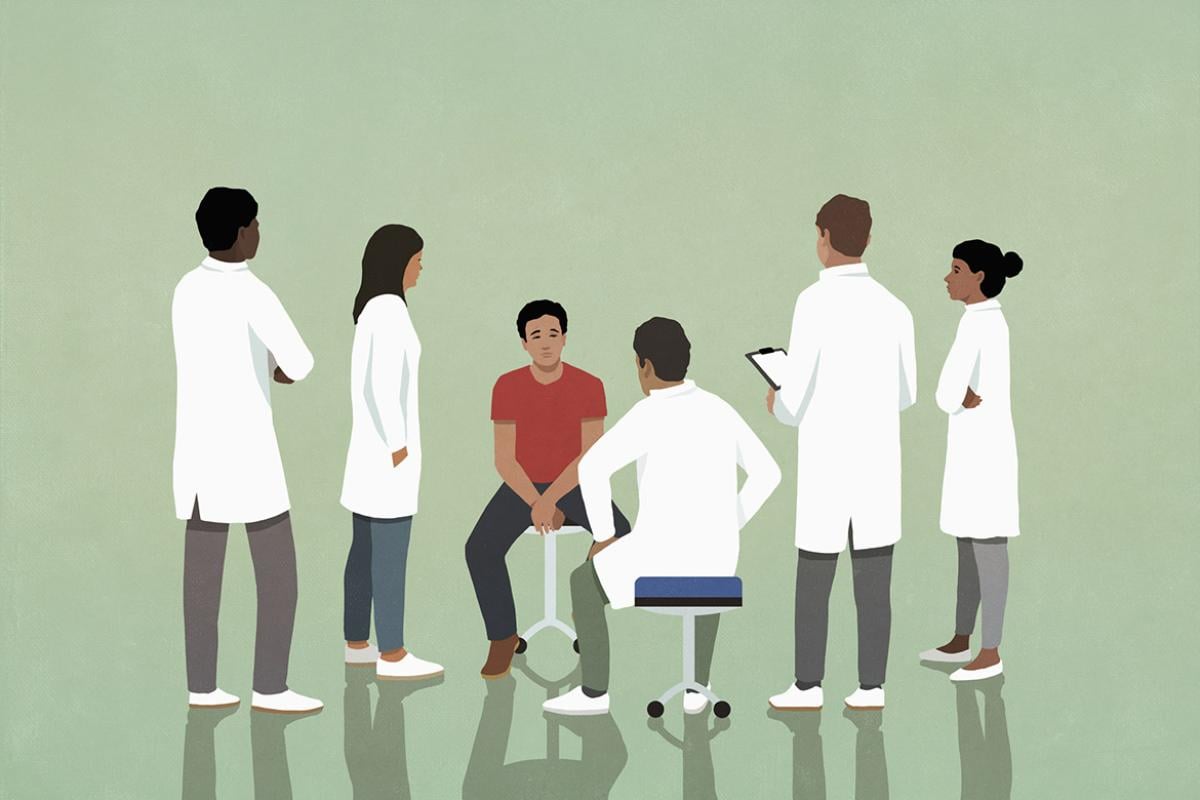Residency programs are seeking curious future physicians. One avenue to show your curiosity—and ambition—is through research done during your time as a medical student.
For medical students looking for an additional opportunity to showcase their research, the deadline for abstract submissions for the AMA Research Challenge—the largest national, multispecialty research event for medical students and residents—is July 16, 2025.
As residency-selection approaches, many medical students who have conducted research—especially those who aim to pursue academic medicine—are likely to make their experiences a part of their application packets. Here’s some insight on what that looks like.
Aspects of you application
Many aspects of your residency application are data-driven and fairly standard. Yet some aspects of it, such as your personal statement and comprehensive CV, are going to be unique to you and your interests. If your medical school experience involved research, particularly if you were successful in your scholarly pursuits, that is worth highlighting.
Arman Shahriar, a resident physician at University of Chicago Medicine, said he highlighted his medical student research—which earned him a spot in the 2021 AMA Research Challenge finals—in his personal statement. It was also mentioned in his medical school performance evaluation. Dr. Shahriar said that if you build your application around your research, you should expect to talk about it during the interview process.
“Most interviewers expressed interest in my research, and it came up in nearly all of my interviews,” said Dr. Shahriar. “Some interviewers had actually read [my] papers, whereas others had just noted the topics I researched. Either way, it gave me a platform to talk about things that are important to me.”
Put your passions first
If medical research is a passion, make it a centerpiece of your application, Dr. Shahriar advised. Don’t simply highlight it because you think it is what programs want to hear.
“Build your application around things that matter to you, whether that be research or not,” he said. “The most important thing is to be genuine. So, if research is very important to you, then tie it into things like your personal statement and your MSPE [medical student performance evaluation]. But know that if you do so, you will be talking about it a lot. If not, you can list it on the application server and move on.”
John Andrews, MD, echoed Dr. Shahriar’s advice.
“Program directors are interested in any aspects of someone’s path in medicine that helps them understand an applicant’s journey as a learner,” said Dr. Andrews, the AMA’s vice president for graduate medical education innovations. “If you've engaged in research, if you care a lot about it, that needs to be front and center on your application—especially if it's something that you hope to continue to pursue during your residency training.”
Dr. Andrews said being up front about your interest in research during residency can help you narrow down programs that may not be as research-heavy when you are interviewing and ranking.
Research isn’t required
It’s important to note that medical student research isn’t required to secure a residency position. The National Resident Matching Program (NRMP) conducts occasional surveys of residency program directors. In 2021—the last time the NRMP asked this question—12 other factors were seen as more important in determining whom to interview than a student’s “involvement and interest in research.”
Dr. Andrews said medical students should not pursue research simply to put it on a residency application.
“The decision to participate in research ought to be motivated by your own interests rather than what you stand to gain competitively,” Dr. Andrews said.
There’s also the fact that pursuing research takes time, and research is just one way that medical students can choose to spend their time.
“I had friends in medical school who did no research but are just as—if not better—prepared than I am to begin residency in clinical medicine,” Dr. Shahriar said. “They found success in the application process by highlighting other time-consuming engagements that were important to them. Research is one avenue that I chose to take because it suits my way of thinking.”



